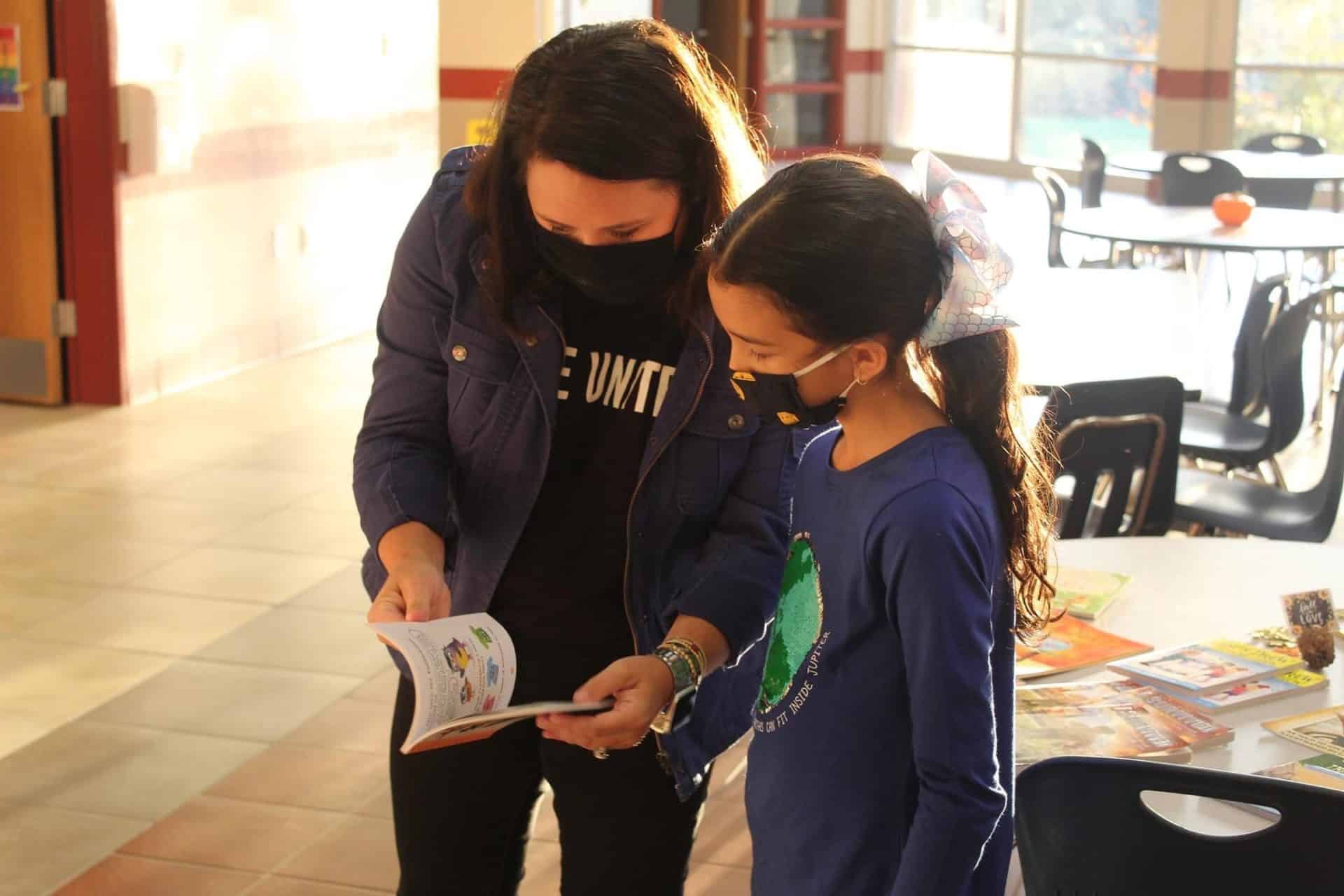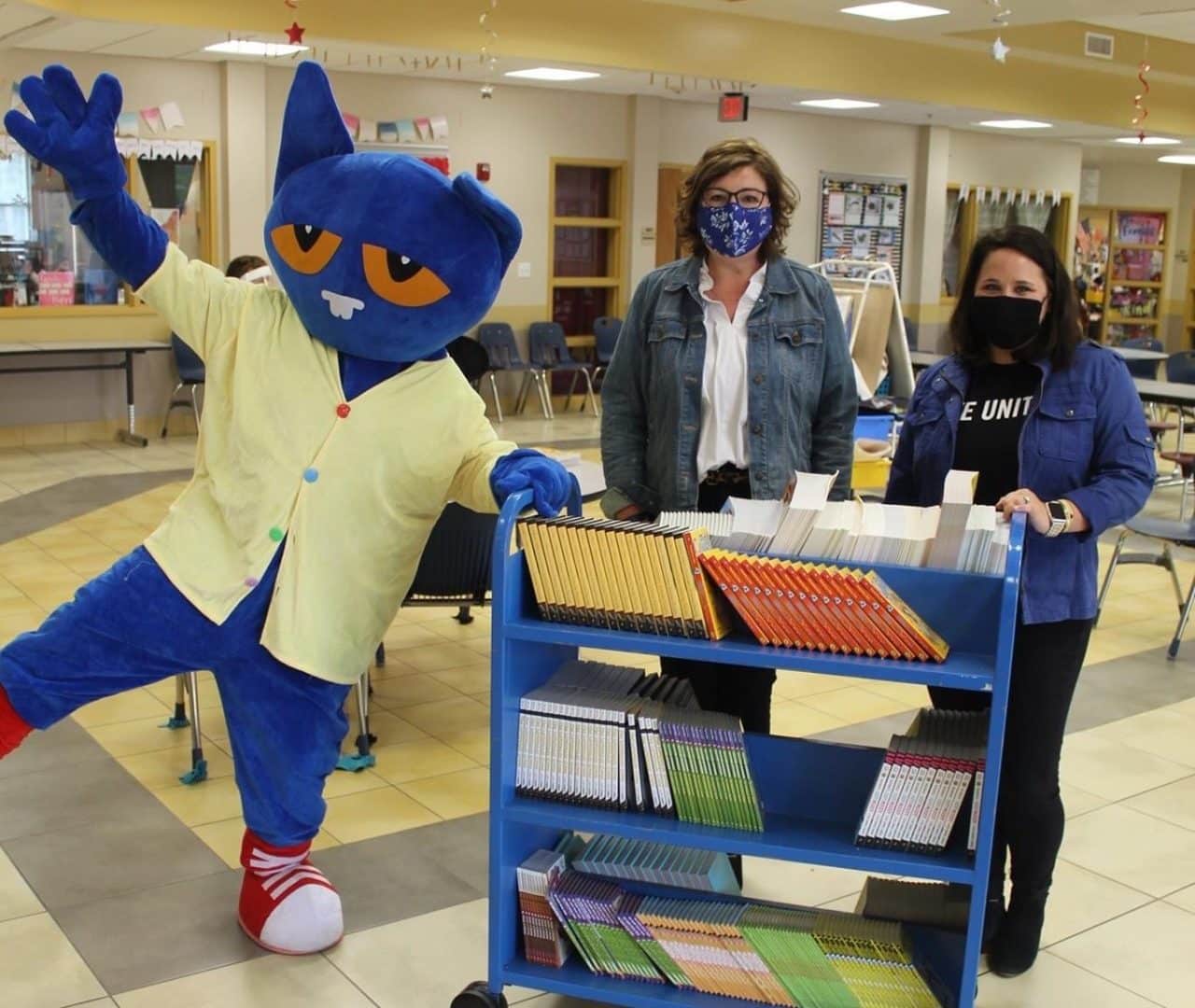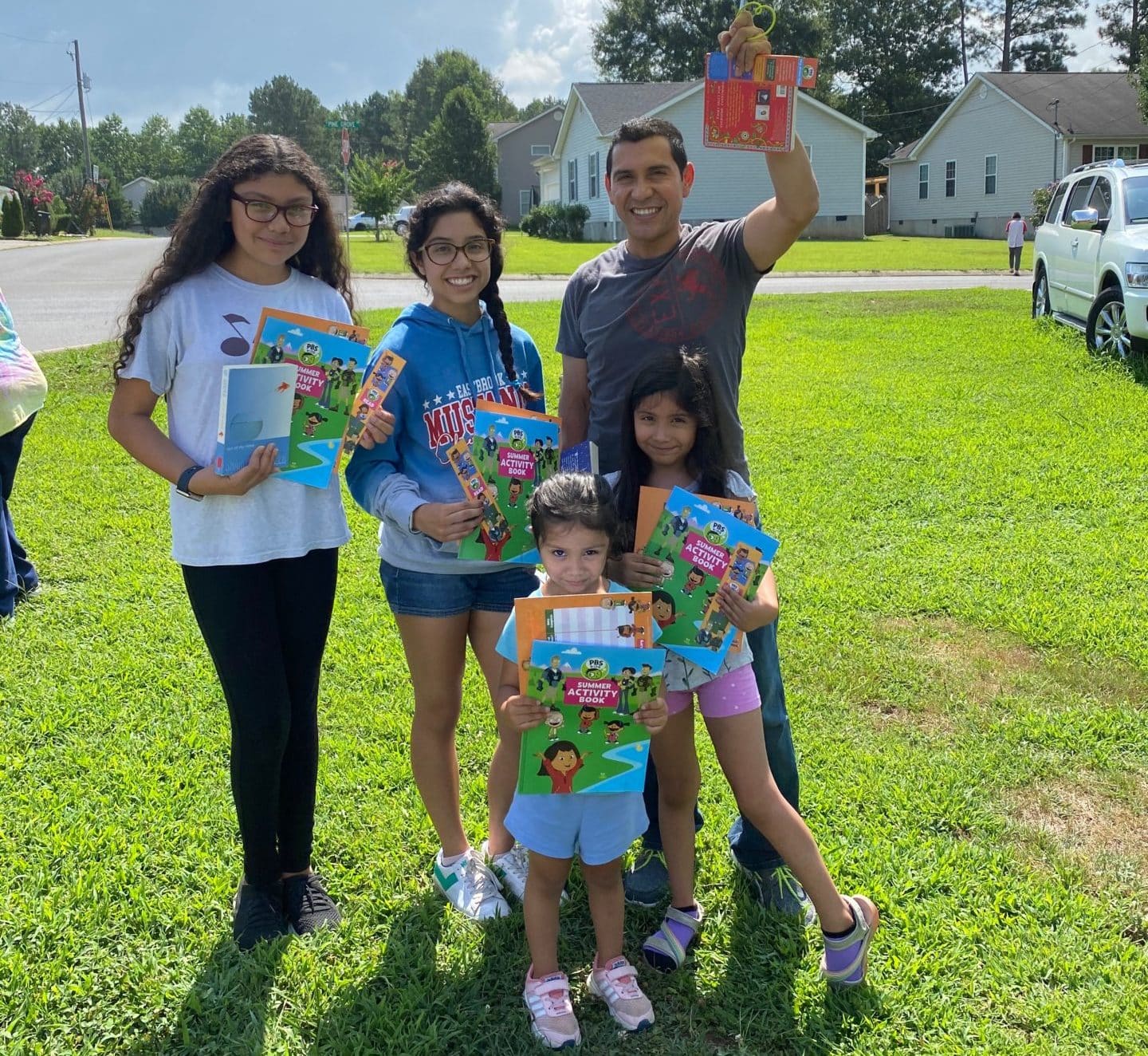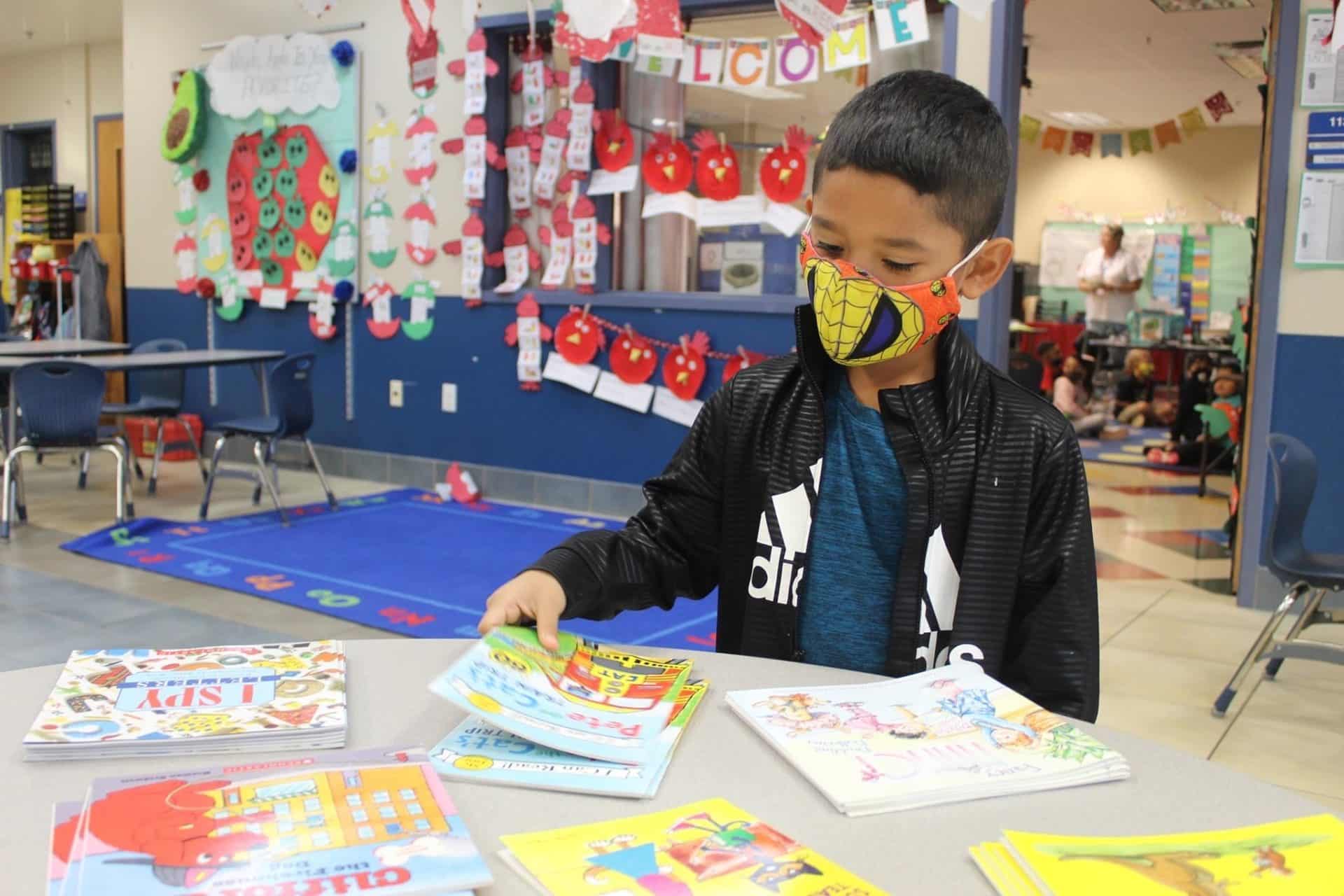Whitfield County Recognized for Work in Supporting Early School Success
National Campaign for Grade-Level Reading Honors Announced

The Campaign for Grade-Level Reading (CGLR) announced that Whitfield County is being honored as a Pacesetter in Grade-Level Proficiency and a Bright Spot in Parent Success for the Get Georgia Reading Campaign community’s work in 2019. This marks the second year in a row that Whitfield County has been awarded Pacesetter Honors.
“At this challenging time, we have much to learn from each other,” said Ralph Smith, CGLR managing director. “These Pacesetter and Bright Spot communities are leading the way in the six impact areas that we know matter. Mobilized communities support our big bet on the problem-solving potential of proximity. We applaud the civic leaders and local funders whose time, talent, energy, and imagination have fueled progress in these communities. We congratulate them for this achievement and encourage our entire network to learn from them.”
The 16 Pacesetter and 19 Bright Spots communities across the United States exemplify extraordinary vision and best practices for their work during 2019 in:
• School Readiness,
• School Attendance/Chronic Absence,
• Summer and Afterschool,
• Healthy Development,
• Parent Success, and
• Grade-Level Proficiency.
“It’s messy getting partners to work together. There’s no easy way to collaborate, except to jump in,” said Suzanne Harbin, director of the Early Childhood Initiative at the Community Foundation of Northwest Georgia. “Our community realized that, in order to move the needle on third-grade reading, we needed buy-in from the entire community. We needed parents, community leaders, schools, grandparents—literally everyone—invested. Once we all decided to work together and saw collaboration as the key, we began to see improvement.”

A small group of leaders in Whitfield County began meeting regularly in 2015 to discuss the best ways to bring high-quality resources to the youngest children in the community. This group’s efforts paved the way for Whitfield to receive Race to the Top federal funding from Bright from the Start: Department of Early Care and Learning (DECAL), and their local efforts merged into the Get Georgia Reading Campaign’s four-pillar framework.
“Get Georgia Reading allowed each of our partners to align their work with one another and gave us clearly defined goals and objectives,” said Harbin. “We pulled apart the pillars and dove deeper into each one. Our group soon realized that access was a barrier, that children needed a language-rich environment in order to learn to read, that a positive learning climate mattered, and that our teachers—including our earliest child care professionals—needed professional development geared toward the goals of school readiness and reading on grade level by third grade.”
Leaders from schools systems, public agencies, civic organizations, nonprofits, churches, health care providers, institutes of higher learning, child care centers, and other partners banded together to ensure that children in Whitfield started school ready to learn—and that these same students would then be prepared to read on grade level by third grade.
Since 2015, both Dalton and Whitfield County Schools third-grade reading scores have shown double-digit gains. The Campaign community has also focused on ways to engage and empower parents, highlighting their role as a child’s first teacher and contributor to their student’s school success.

When the COVID-19 pandemic closed schools this spring, both Dalton Public Schools and Whitfield County Schools immediately began serving breakfast and lunch to every child thanks to the already established Summer Feeding Site system and Power Lunch literacy programs. Both school systems added a layer of outreach this summer as volunteers distributed over 5,000 books along with engaging at-home activities at the feeding sites.
“We’ve retooled and are pushing through,” said Harbin. “Now, more than ever, it is so important that we make sure from the moment our children are born that parents are talking and reading to them. We want our kids to be prepared to enter school and ensure that they have the best tools available to be on the pathway to reading on grade level—despite COVID-19 and all of its barriers.”
The Pacesetters’ Journey
CGLR announced the 29 Pacesetter finalists in July, recognized on the basis of their having filed stories that were highly rated by peer reviewers from GLR Network communities. The stories describe successful strategies, approaches, and programs the finalists are implementing in their communities.
A Technical Review Team read the original stories and assessed supplementary data the finalists filed to substantiate observable progress in one or more of the six impact areas. CGLR then asked the 112 communities that responded to self-nominate for Pacesetter Honors for one or more of their stories submitted for the What’s Working Community Challenge.
CGLR received self-nominations of 214 stories from 50 communities representing 23 states and one Canadian province. Panels of community-based peer reviewers considered, sorted, and ranked the nominated stories. By the end of the process, close to 400 peer reviewers filed 2,000 story reviews.
Communities are recognized as Bright Spots for filing stories that were highly rated for their promising ideas, approaches, and strategies based on criteria of effectiveness, replicability, and sustainability.
“The commitment to peer review is a unique and important aspect of the Pacesetter recognition process,” said Smith. “The peer reviewers bring a combination of local knowledge and real-world experience that adds heft and credibility to the process.”

About the Campaign for Grade-Level Reading
Launched in 2010, the Campaign for Grade-Level Reading is a collaborative effort of funders, nonprofit partners, business leaders, government agencies, states and communities across the nation to ensure that many more children from low-income families succeed in school and graduate prepared for college, a career and active citizenship. Since its launch, CGLR has grown to include more than 350 communities, representing 45 states, the District of Columbia, Puerto Rico, the U.S. Virgin Islands and two provinces in Canada — with 5,000+ local organizations and 510 state and local funders (including 200+ United Ways). Follow the movement on Twitter @readingby3rd.
Contact:
Krystin Dean
GaFCP Communications Specialist
706-897-4711
krystin@gafcp.org
Follow us on Twitter: @gafcpnews
Connect with us on Facebook.
Georgia Family Connection Partnership (GaFCP) is a public-private partnership created by the State of Georgia and investors from the private sector to assist communities in addressing the serious challenges facing children and families. GaFCP also serves as a resource to state agencies across Georgia that work to improve the conditions of children and families. Georgia KIDS COUNT provides policymakers and citizens with current data they need to make informed decisions regarding priorities, services, and resources that impact Georgia’s children, youth, families, and communities.
